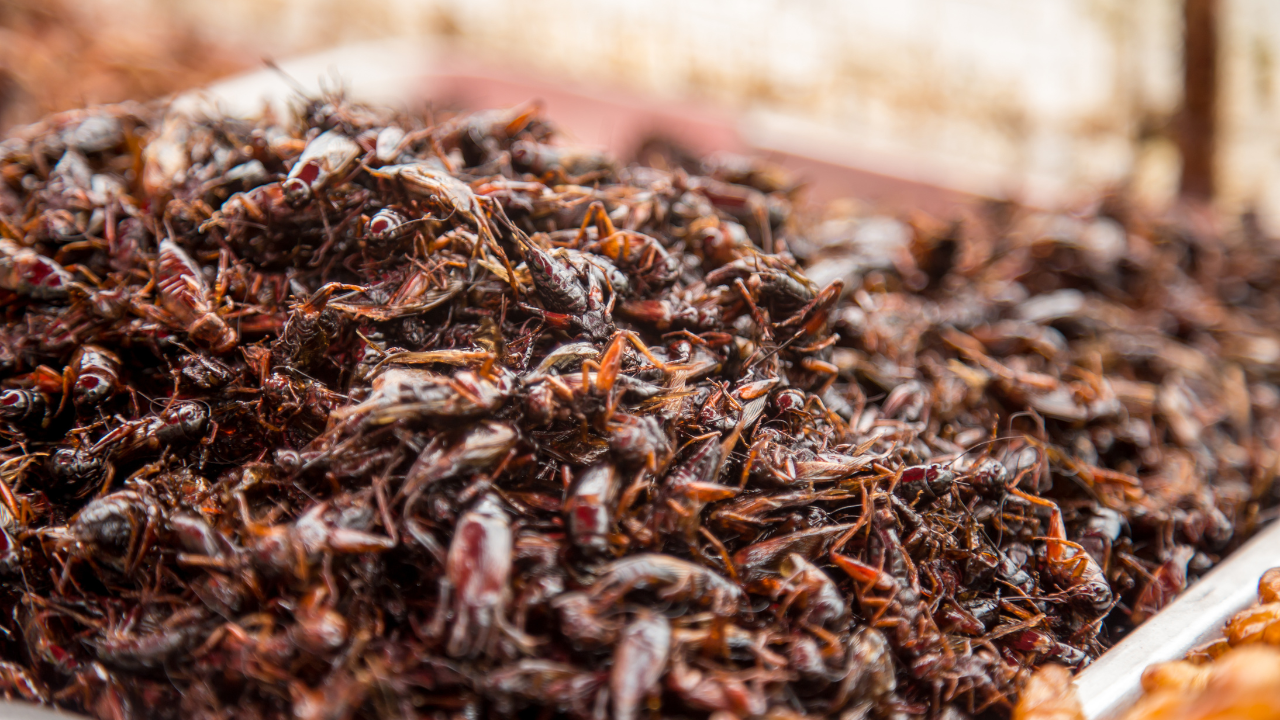How Edible Insects Are Changing the Future of Sustainable Eating
As the world faces growing environmental challenges and a rapidly increasing population, how we source and consume food is under intense scrutiny. Traditional livestock farming demands vast resources and significantly impacts our planet’s health. In this evolving landscape, edible insects have emerged as a game-changing solution, offering a sustainable, nutritious, and innovative approach to eating.
Here’s how edible insects are changing the future of sustainable eating and why they deserve a place on our plates.
The Environmental Toll of Conventional Protein
Livestock farming is one of the most significant contributors to worldwide greenhouse gas emissions, deforestation, and water use. Raising cattle, pigs, and poultry requires significant land, feed, and water, putting enormous pressure on natural resources. As global demand for protein grows, this system becomes increasingly unsustainable.
This environmental strain calls for alternative, less resource-intensive, but equally nourishing protein sources. Edible insects fit perfectly into this category, providing an efficient and eco-friendly way to produce high-quality protein with a fraction of the environmental cost.
Why Edible Insects Are Eco-Friendly
Edible insects such as crickets, grasshoppers, and mealworms require much less land and water than traditional livestock. For instance, crickets need about 12 times less feed than cattle to produce the same amount of protein. They also emit fewer greenhouse gases, like methane and ammonia, which contribute to climate change and air pollution.
Insect farming is highly efficient. Insects convert feed into protein quickly and with minimal waste. This efficiency makes edible insects a promising solution to reducing the environmental footprint of our diets and promoting more sustainable food systems.
- Nutritional Powerhouses
Beyond being environmentally friendly, edible insects are nutritional champions. They are packed with high-quality protein, essential amino acids, healthy fats, vitamins, and minerals such as iron, zinc, and calcium. Many edible insects contain more protein per gram than beef or chicken, making them an excellent source of nutrition.
For people looking to improve their diets or find alternative protein sources, edible insects offer a nutrient-rich option that supports health and wellness without compromising sustainability.
- Versatility in Culinary Uses
Edible insects are incredibly versatile in the kitchen. They can be enjoyed whole, roasted for a crunchy snack, or ground into fine flours seamlessly blending into baked goods, smoothies, and energy bars. Chocolate-covered crickets or grasshoppers offer a tasty treat for those exploring insect-based snacks.
This culinary flexibility helps normalise edible insects in everyday eating, making it easier for people to incorporate sustainable protein into their diets. Online edible bug shops, like ecoEat.com, provide various products that inspire creativity and make sustainable eating accessible and delicious.
- Supporting Ethical and Sustainable Farming Practices
Insect farming often involves smaller-scale, controlled environments that emphasize ethical and sustainable practices. Many producers focus on minimising waste and avoiding harmful chemicals or antibiotics common in conventional animal farming.
By supporting edible insect producers, consumers are investing in a food system that prioritizes animal welfare and environmental responsibility. This shift contributes to a broader movement toward ethical food choices and responsible consumption.
- Educating and Empowering Consumers
One of the biggest challenges for edible insects is changing perceptions. Education is vital to breaking down cultural barriers and misconceptions around insect eating. Many online edible bug shops provide extensive resources, including blogs, recipes, and nutritional facts, to help consumers confidently understand the benefits and enjoy edible insects.
By making edible insects more visible and approachable, these educational efforts empower individuals to make informed, sustainable food choices that positively impact their health and the planet.
- Meeting Global Food Security Needs
With the global population projected to reach nearly 10 billion by 2050, food security is a pressing concern. Traditional protein sources may struggle to meet this demand sustainably. Edible insects offer a scalable and resource-efficient alternative that can help feed more people with fewer environmental costs.
By embracing edible insects as a viable protein source, societies can diversify their food supply, reduce pressure on natural resources, and build resilience against future food shortages.
Conclusion
Edible insects represent a remarkable opportunity to transform the way we eat sustainably. Their environmental benefits, nutritional value, and culinary versatility position them as vital to the future food landscape. By choosing edible insects, we support innovative farming practices, reduce our ecological footprint, and contribute to global food security.
As more people discover the benefits of edible insects through accessible online shops like ecoEat.com, this sustainable protein is poised to become a mainstream choice. We can embrace edible insects and help create a healthier planet and a more sustainable food future.

